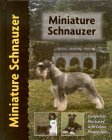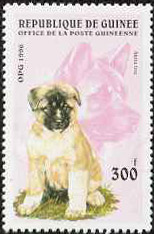
Miniature Schnauzer (Pet Love)
Miniature Schnauzers are the smallest of the Schnauzer family, which also includes Standards and Giant Schnauzers. Miniature Schnauzers are easier to handle because of their small size, though they are lively dogs and know their own minds. They are a little like terriers in being bold, especially with other dogs, and liking to dig and chase and catch small prey, but they are more biddable than most terriers. Miniature Schnauzers do need regular walks, or they will tend to get fat and barky. They like following their noses, but generally have better recall than most terriers. They can perform well in obedience classes.
Are these dogs good with children? They can do very well in families with children, because they are active, lively dogs, which like attention and can keep up with children, so long as they are trained properly from when they are pups. Their small size does make them a little vulnerable to young children, so supervision is important.
Miniature schnauzers sometimes have problems getting on with other dogs. It is not so much that they attack other dogs, but they sometimes make displays which are seen as aggressive by passing dogs, and which can get them into scraps. Socialization with other dogs helps, but even well-socialized Miniature Schnauzers will sometimes get into trouble on walks.
These dogs can be quite barky, especially at visitors, and when they want something. This means that they make useful watchdogs, and their alarm barks can be switched off by praising them for giving you the alarm call, then asking them to sit. Barking for attention can be discouraged by simply ignoring them when they bark, and rewarding quiet sits. Miniature Schnauzers are usually good with visitors, and friendly with strangers who say hello to them. A hello from a stranger tends to quieten a barking Schnauzer. Miniature Schnauzers are not especially nippy, but need special care paid to bite inhibition training just in case, since they can be pushy when they want something. They don't shed much, but do need attention to grooming, or they mat. Clipping helps keep their coats easy to manage. They can get food in their beards. Their usual haircut accentuates their beards and eyebrows, and shows off their bodies.
These dogs do vary somewhat in temperament, and some are livelier and bolder than others. It's worth meeting the parents of a pup you are interested in, to find a temperament that suits you. Common health problems include kidney and liver disorders, skin disorders and allergies, von Willebrand's disease, diabetes, cysts, and eye problems.
This is a well-illustrated guide to Miniature Schnauzers, with good advice on general care, grooming and showing, as well as an interesting account of the breed's history. You can skip the training advice!



